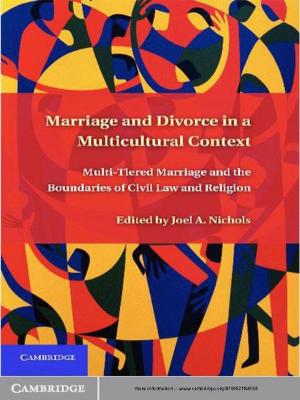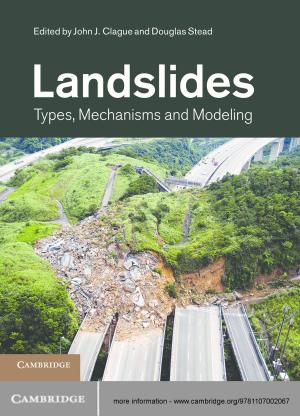Social Theory and Religion
Nonfiction, Social & Cultural Studies, Social Science, Sociology, Religion & Spirituality| Author: | James A. Beckford | ISBN: | 9781139809634 |
| Publisher: | Cambridge University Press | Publication: | August 21, 2003 |
| Imprint: | Cambridge University Press | Language: | English |
| Author: | James A. Beckford |
| ISBN: | 9781139809634 |
| Publisher: | Cambridge University Press |
| Publication: | August 21, 2003 |
| Imprint: | Cambridge University Press |
| Language: | English |
Many aspects of religion are puzzling these days. This 2003 book looks at ways of improving our understanding of religious change by strengthening the links between social theory and the social scientific study of religion. It clarifies the social processes involved in constructing religion and non-religion in public and private life. Taking illustrations of the importance of these boundaries from studies of secularisation, religious diversity, globalisation, religious movements and self-identity, Beckford reviews social scientific knowledge about religion and assesses the strengths and weaknesses of a wide range of theoretical attempts to account for religious change and continuity. The discussion goes in two directions. The first is towards identifying ways in which studies of religion would benefit from taking better account of themes in recent social theory. The second is towards identifying reasons for social theorists to pay more attention to the findings of empirical investigations of religion.
Many aspects of religion are puzzling these days. This 2003 book looks at ways of improving our understanding of religious change by strengthening the links between social theory and the social scientific study of religion. It clarifies the social processes involved in constructing religion and non-religion in public and private life. Taking illustrations of the importance of these boundaries from studies of secularisation, religious diversity, globalisation, religious movements and self-identity, Beckford reviews social scientific knowledge about religion and assesses the strengths and weaknesses of a wide range of theoretical attempts to account for religious change and continuity. The discussion goes in two directions. The first is towards identifying ways in which studies of religion would benefit from taking better account of themes in recent social theory. The second is towards identifying reasons for social theorists to pay more attention to the findings of empirical investigations of religion.















